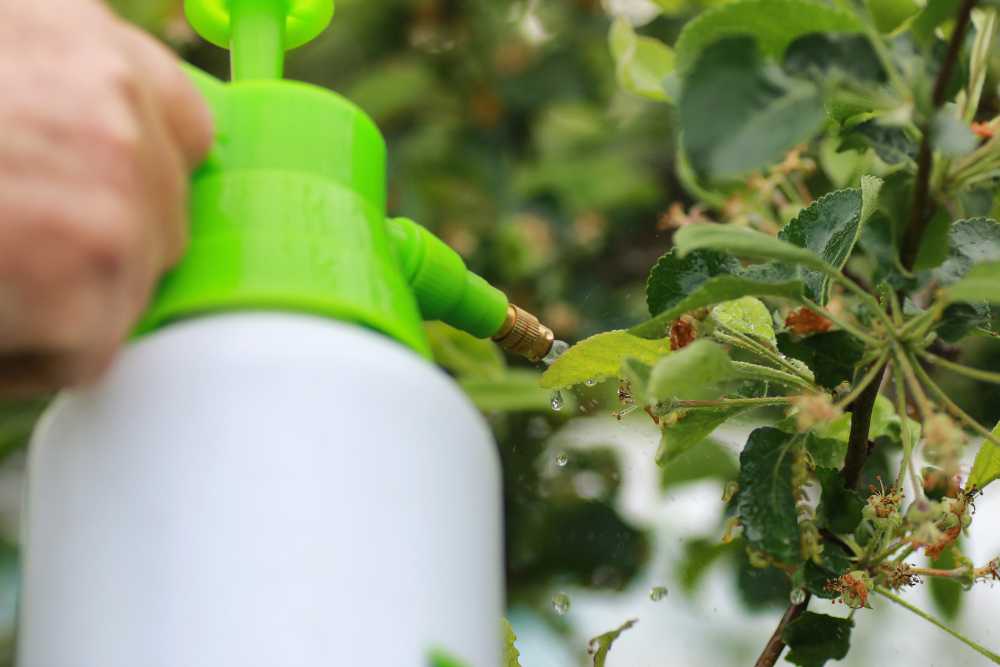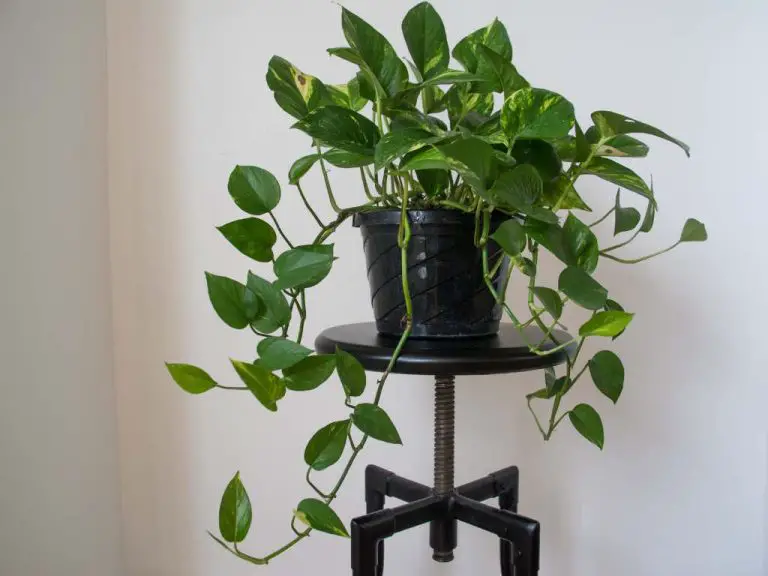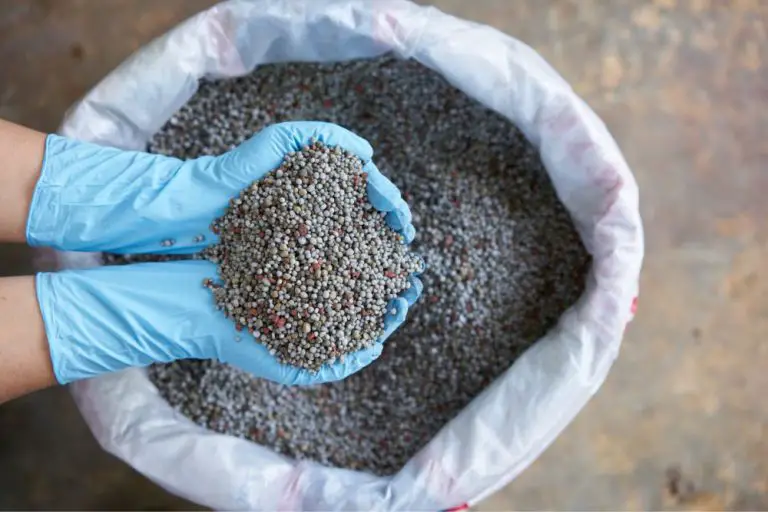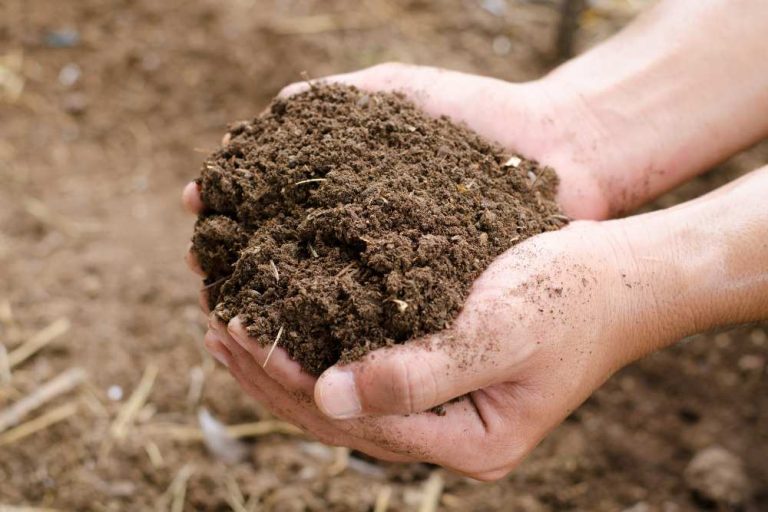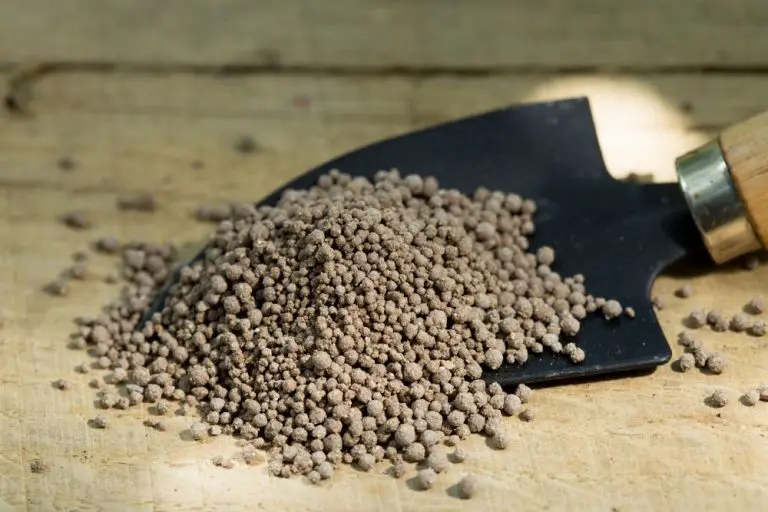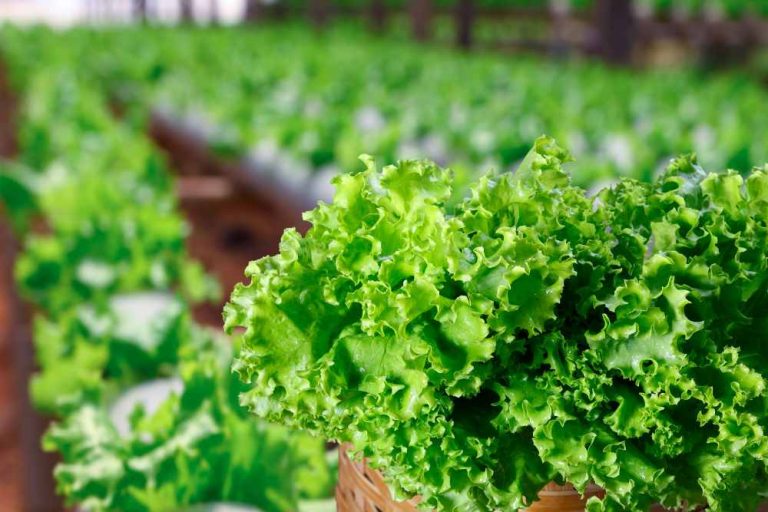Ultimate Guide to the Best Organic Pesticide for Vegetable Garden
You plant the seeds, water the plants, and keep weeds away. But then you go out to your garden one day and find pests destroying your plants! Fortunately, you don’t have to use a hazardous pesticide to eradicate those pests. Instead, take a look at these best organic pesticide for vegetable garden.
Why Use Organic Pesticides?
We’ve already talked about the benefits of using organic fertilizers in your garden, but what about organic pesticides? If you’re attempting to develop an organic garden, you’ll undoubtedly want to apply an organic pesticide to keep your produce safe to use.
Despite organic regulations, picking organic pesticides is still crucial. The biggest advantage of utilizing organic pesticides is that they are less harmful to the environment. Pesticides made of chemicals may be damaging to the environment.
They have the potential to contaminate the soil, exterminate neighboring wildlife, and taint drinking-quality groundwater. Pesticides can also leach into food and leave hazardous residues. Several studies have connected pesticides to cancer, Alzheimer’s disease, birth deformities, ADHD, and damage to the brain system, reproductive system, and endocrine system.
You wouldn’t buy antibacterial hand soap or hand sanitizer because they leave bacteria that are resistant to antibiotics, and you shouldn’t use chemical sprays or pesticides since insects can get resistant to them.
Garden pests, on the other hand, are less likely to get resistant to organic pesticides because they are organically based rather than synthetically produced. Now that you know why you should apply an organic pesticide, determine what type of insect is troubling your garden and then select one of these best organic pesticides.!
Types Of Pest Control Methods
There are numerous types of pest management, so let’s go over each one so you know what you’re introducing into the garden.
- Pesticides – Insects, snails, and slugs can all be killed using pesticides. They are effective when consumed by insects as well as when they come into contact with insecticides. Some of these operate immediately, while others take some time to become effective.
- Insecticides – Insecticides are a form of pesticide and are used to target and kill specific insects, like wasp spray, ant killer, and snail bait. Broad-spectrum insecticides are also included.
- Spinosads – A spinosad is a type of insecticide that is highly toxic to insects but non-toxic to most other organisms. Spinosad is a “combination of two compounds known as spinosyn A and spinosyn D” that is used to manage a range of insects and pests such as fruit flies, ants, mosquitoes, thrips, and leafminers.
Pyrethrin – Pyrethrin is a pesticide derived from flowers. It is generally safe to use in a garden and on edible plants because it is a natural product. Pyrethrin is effective in killing ants, aphids, caterpillars, fleas, and wasps.
Organic Insecticides (Botanical) – These are the greatest natural pesticides for specific insects and they don’t affect people or the environment. This is a logical choice for many people because you’re attempting to keep pests away from the crops you’re growing to consume (pun intended).
1. Monterey LG6135 Garden Insect Spray
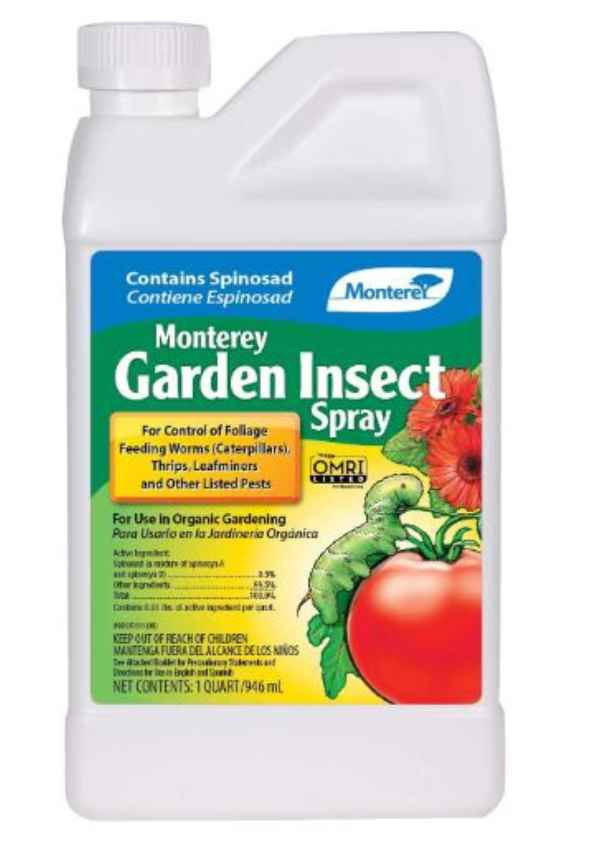
Several insects, including caterpillars, leaf miners, codling moths, tent caterpillars, thrips, borers, and fire ants, are quickly controlled by Monterey Garden Insect Spray. Use it on vegetables, lawns, and outdoor ornamentals.
Spinosad, the active component, is a fermentation-produced bacterial product. Insects that swallow spinosad experience nervous system damage, which results in their death within 1 to 2 days. It has no odor, is approved for organic agriculture, is safe to use near people and pets, and can be used till harvest.
- It is available as a liquid concentration.
- To use, combine the product with water as directed on the label and spray using a trigger, handheld, backpack, or hose-end sprayer.
- Type: Organic sprayable liquid. Caterpillars, leaf miners, loopers, trips, moths, fruit flies, borers, and flea beetles are among the pests targeted.
- The weight is 32 ounces and has a spinosad formula.
- Verified by the Organic Materials Review Institute (OMRI).
- Safe for a variety of plant species.
- Effective against a wide range of insects. It must be diluted before usage.
2. BioAdvanced Fruit, Citrus & Vegetable Insect Control for Edible Gardening
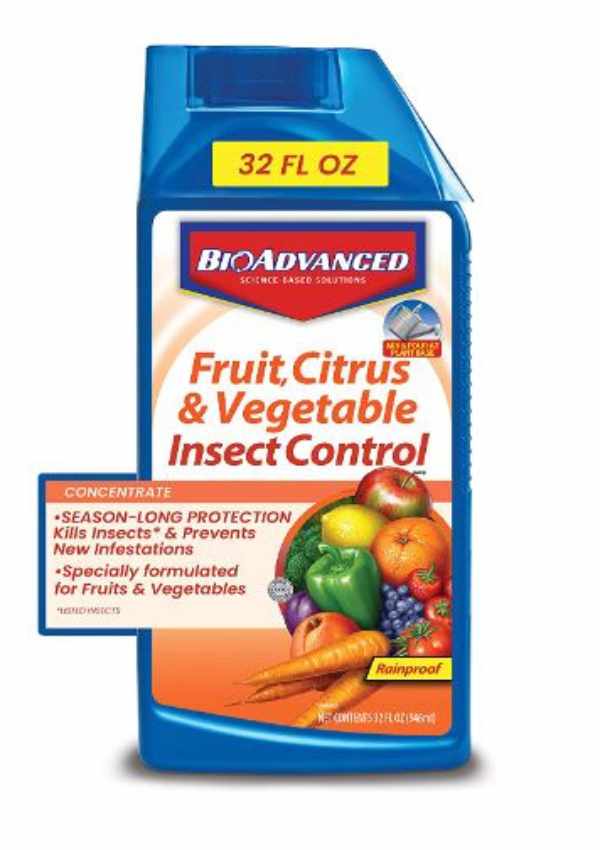
Best Pesticide for Rainproofing. This mixture is a must for your plants if mealybugs, thrips, aphids, and scales are common visitors to your vegetable garden. This pest control product from BioAdvanced has been carefully designed with 0.235% imidacloprid for a variety of edible crops, including fruits and vegetables.
Although this solution may kill insects, a thorough application will help prevent subsequent infections. A single treatment can protect you for the entire season. The solution is also rainproof, which means it will not wash away after rain and you will not have to reapply it.
- According to the manufacturer, 12 ounces of concentrate should be used for every 10 square feet of vegetables.
- Please remember to follow the pre-harvest time guidelines before applying and eating the crops.
- It can be used on up to 640 square feet of vegetable area.
- It is effective against each of the 25 insects specified on the bottle.
- Works well on vegetables like tomato, pepper, carrots, cucumber, and herbs.
3. BioAdvanced Advanced Insect Spray
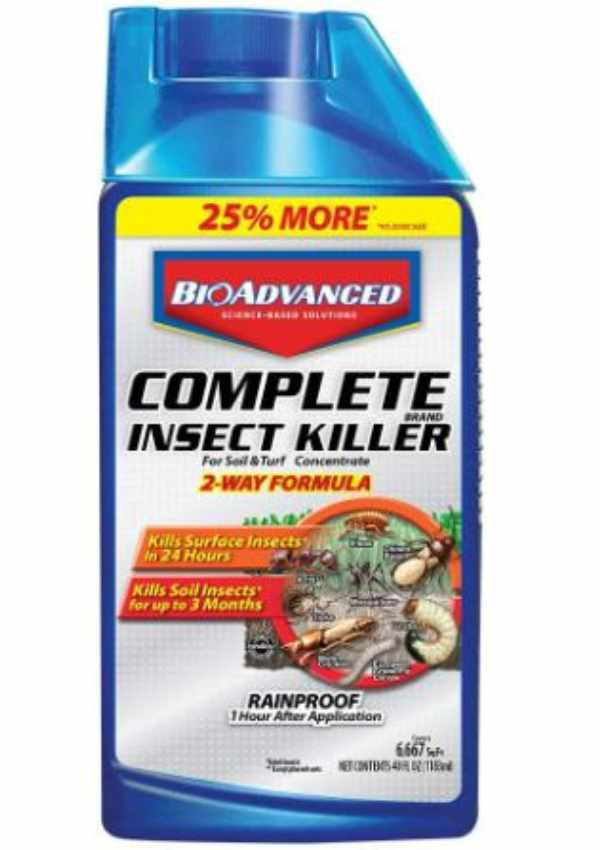
BioAdvanced insect spray is a potent, long-lasting topical spray that can be applied BioAdvanced insect spray is a potent, long-lasting topical spray that can be used for up to three months. It can protect fruit and vegetable crops from over 100 insect pests, such as Japanese beetles, aphids, and tomato hornworms.
Nevertheless, fish, aquatic invertebrates, as well as bees, are extremely hazardous to this insecticide. To safeguard beneficial insects, carefully follow the instructions on the label. Both people and animals can safely enter the garden once it has dried.
Cyfluthrin, the active component, is a gastrointestinal toxin that kills feeding insects within 24 hours. As plants mature, more treatments could be necessary since pest insects need to consume the treated plant tissue for the chemical to be effective. The 32-ounce concentration yields 64 gallons of spray and treats an area of up to 5,000 square feet.
- The spray-type chemical. Aphids, Japanese beetles, cutworms, tomato hornworms, and other pests are among those targeted.
- The weight is 32 ounces. A potent topical formula.
- Kills over 70 different insect species.
- After 1 hour, it is rainproof. It can last up to 14 days.
- Only for use outside.
4. Natria 706230A Insecticidal Soap
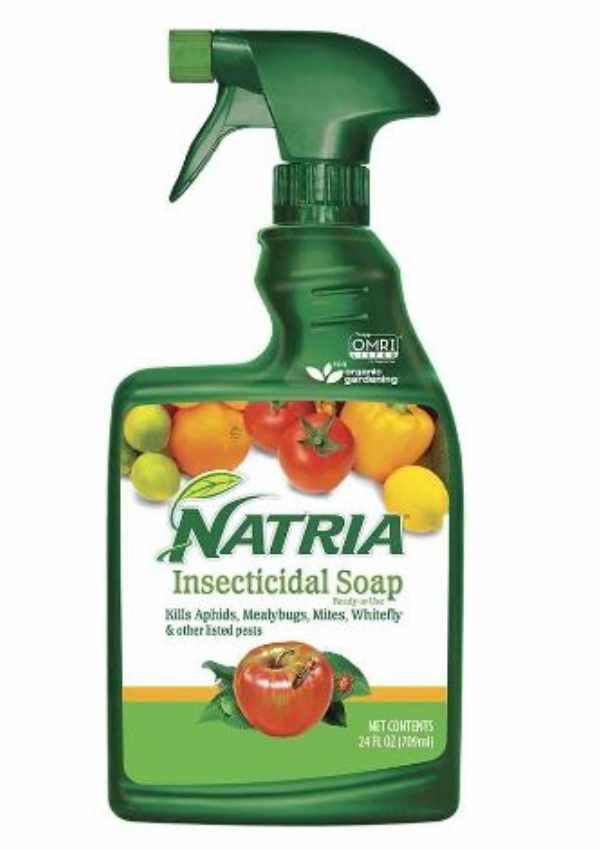
Natria Insecticidal Soap is a multifunctional pesticide that acts in minutes and kills on contact. It is safe to use on indoor and outdoor plants to treat whiteflies, aphids, mealybugs, mites, and various other insects.
Employ it against pests in their adult, larval, or nymphal stages. The presence of the targeted pests is required for the treatment to be effective; it is not a preventive measure. It is safe to use on fruits and vegetables, as well as roses, flowers, and houseplants, until the day of harvest. The ready-to-use trigger-spray bottle makes the application simple.
Target both the upper and lower leaf surfaces in addition to the stems. Although it’s important to take care not to release soap salts directly into aquatic ecosystems, they pose minimal damage to the environment due to how quickly they break down in the soil.
- Organic soap spray is the type.
- Pests targeted include aphids, mealybugs, mites, whiteflies, and others.
- The weight is 24 ounces.
- OMRI-certified nontoxic neem oil formula.
- Use both inside and outside It is effective against bugs, rust, mildew, and black spot.
5. Bonide Captain Jack’s DeadBug Brew
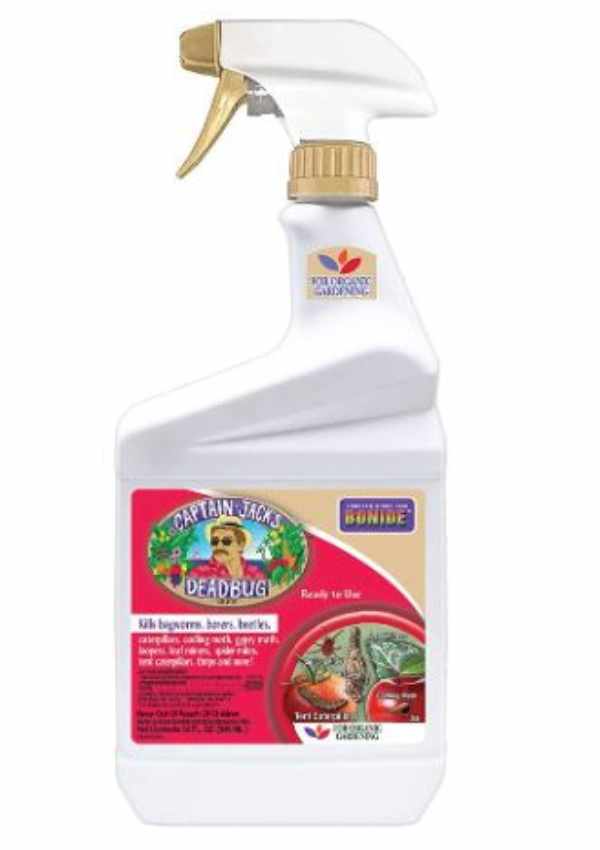
A vegetable garden has a variety of plants; therefore, using a single product to care for all of them is both convenient and cost-effective for the gardener. This product is effective on fruiting, tuberous, and leafy crops.
The best aspect of this insecticide is that it exclusively targets harmful pests and has no effect on helpful insects. Beneficial insect impact is a key worry for many gardeners because most treatments on the market end up killing useful insects to the garden and the ecosystem.
- Since this is a ready-to-use product, there is no need to worry about mixing or ratios.
- It is appropriate for all edible, decorative, and lawn care plants.
- Handles a wide range of pests such as caterpillars, thrips, spider mites, and worms.
- Certified as organic because Spinosad is the active component.
- The spray bottle makes application simple.
6. Dr. Earth Ready to Use Disease Control Fungicide
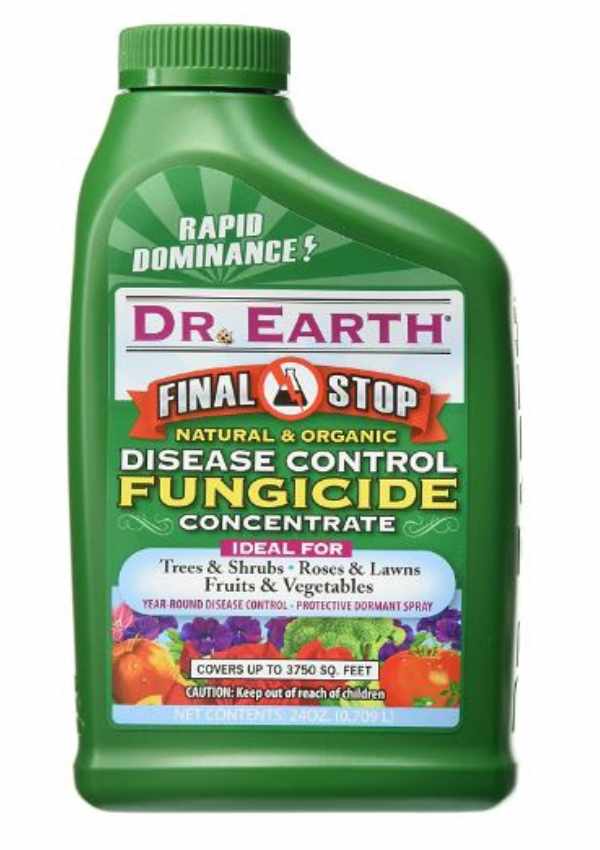
longest-lasting pesticide for protection. Dr. Earth is a well-known company that provides a variety of high-quality items for gardeners and plant enthusiasts. This organic and natural disease and pest management treatment is ideal for your vegetables.
It is effective for several weeks after just one application. To get the best results, spray it on all plant surfaces. This treatment is primarily intended to treat illnesses like powdery mildew, black spot, and rust, but the essential oils and other substances can also function against pests and aid in the healing of damaged leaves.
- This spray can be used on vegetables until the day before harvest.
- Before applying the fungicide, dilute it in water.
- 100% organic and vegetable-safe. Long-lasting, high-quality results Several sprays provide year-round protection against the majority of diseases and pests.
- OMRI recognized.
- It has a natural odor.
7. St. Gabriel Organics Milky Spore Grub Control
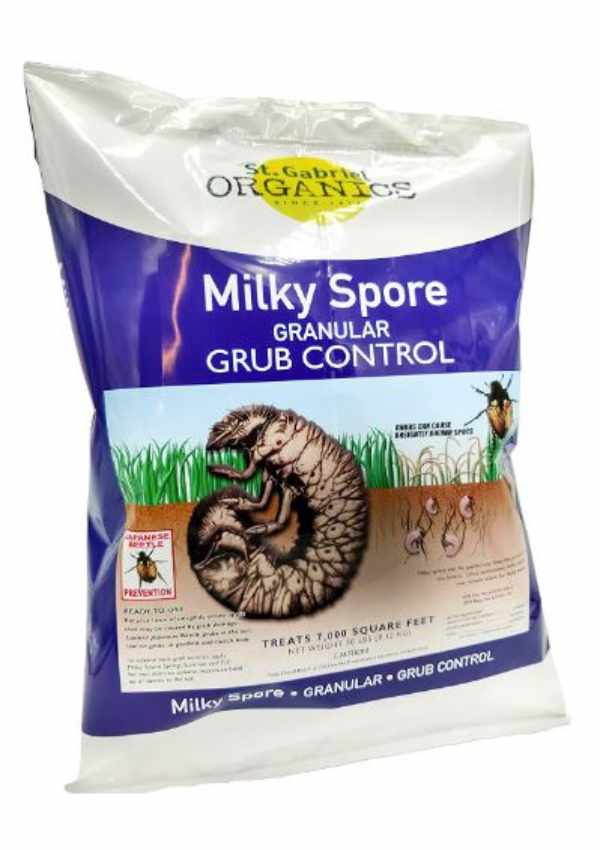
St. Gabriel Organics Milky Spore Grub Control is a preparation of the naturally occurring Paenibacillus popilliae bacteria. It is an environmentally friendly alternative because it only affects the white Japanese beetle larvae while they grow underground and does not affect other soil inhabitants like beneficial earthworms.
Usage in areas where Japanese beetles have been an issue drastically reduces local populations of this nasty foreign species. As part of their natural eating pattern, the larvae devour milky spores. During 1 to 3 weeks after the bacteria have begun to colonize, the larvae die, releasing millions of fresh bacteria spores into the soil.
- Weight: 20 pounds.
- From spring until fall, scatter milky spore granules with a calibrated garden spreader.
- Despite the product starting working immediately, full control, which protects against the beetle for up to 20 years, takes 1 to 3 years in warm climes and up to 5 years in cool climates.
- A 20-pound bag covers an area of up to 7,000 square feet.
- Granular fertilizer types.
- Japanese beetle is one of the pests that have been targeted.
- Immediately effective. 7,000 square feet of coverage kills for 15 to 20 years
8. Garden Safe Neem Oil Extract Concentrate
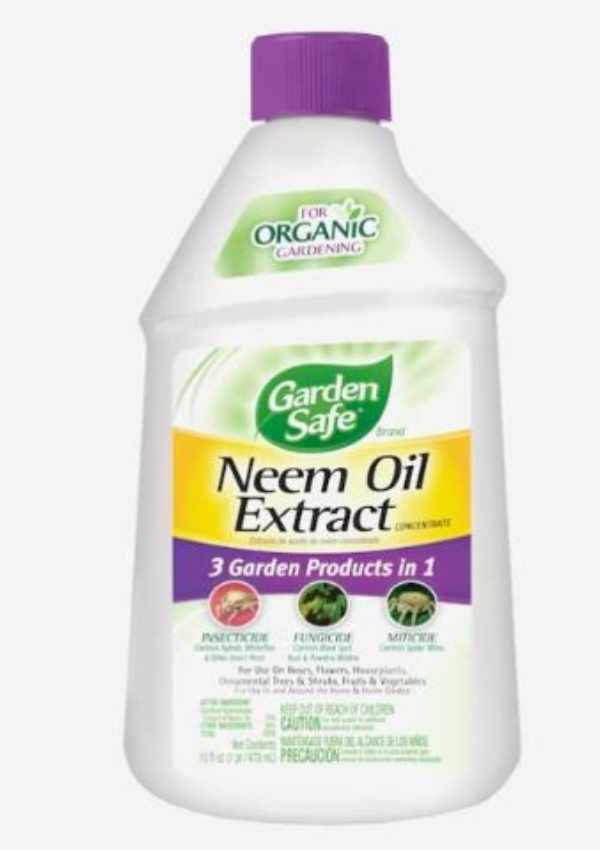
Garden Safe Neem Oil may be able to save the day—at a fantastic price—if pests aren’t the only thing affecting plants. Together with spider mites, it quickly eradicates aphids, whiteflies, and other soft-bodied insects. It also works just as well against fungi that cause rust, black spots, and powdery mildew.
Put it on fruits, vegetables, bushes, trees, and even indoor plants. Fruit trees can benefit from using it as a dormant season spray to eliminate insects and their eggs that may be hiding in the bark. Neem oil is a naturally occurring pesticide that is made from the neem tree’s seeds and has no harmful effects on people or other non-target organisms.
It has been used as a pesticide for centuries (as well as for a variety of other domestic and industrial applications), and it lowers insect feeding, acts as a repellant and makes it difficult for insects to lay eggs and mature. To minimize leaf burn, mix the concentrate according to the label guidelines and apply it with a sprayer. Do not use foliage during hot weather.
- Oil spray is the type. Aphids, whiteflies, spider mites, beetles, and leaf rollers are among the pests targeted.
- Contains 10 ounces.
- It is both a repellant and an insecticide.
- Neem oil, which is found naturally, is used.
- Works on a wide range of plants, vegetables, and trees.
9. Summit Spray Oil for Garden Insects
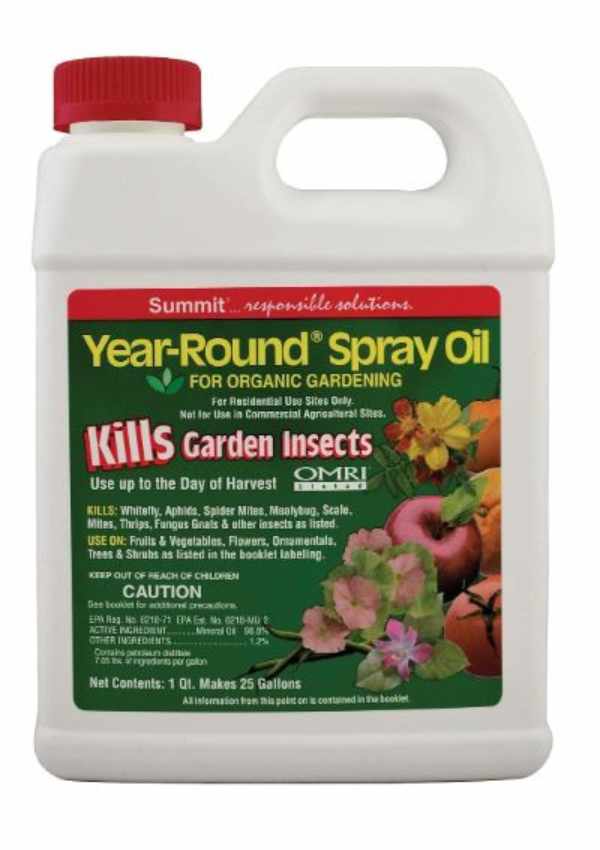
This spray oil is safe to use on most fruits and vegetables, as well as trees, shrubs, and ornamental plants. It is a ready-to-use spray that can be used to get rid of bugs like fungus gnats, spider mites, aphids, and whiteflies.
Because this oil has no synthetic chemicals or hazardous items, it aids in insect control without contaminating the veggies. This oil serves to repel pests in addition to killing them, leaving the leaves looking shiny in the process.
The hose end simplifies the installation. For a large vegetable garden, all you need to do is connect the bottle to a garden hose or sprayer. This product differs from others in that it does not poison pests; rather, it suffocates them.
This oil is quite efficient against insects with soft bodies. The particular recipe can be used in practically any season of the year with little risk of burning the produce or leaves.
- OMRI listed.
- Free of artificial chemicals.
- It can also be used to treat powdery mildew.
- There is no long-term residue that causes the death of helpful insects.
- Non-toxic to humans and pets.
- Indoor use is not permitted.
10. Safer Brand 5118-6 Insect Killing Soap
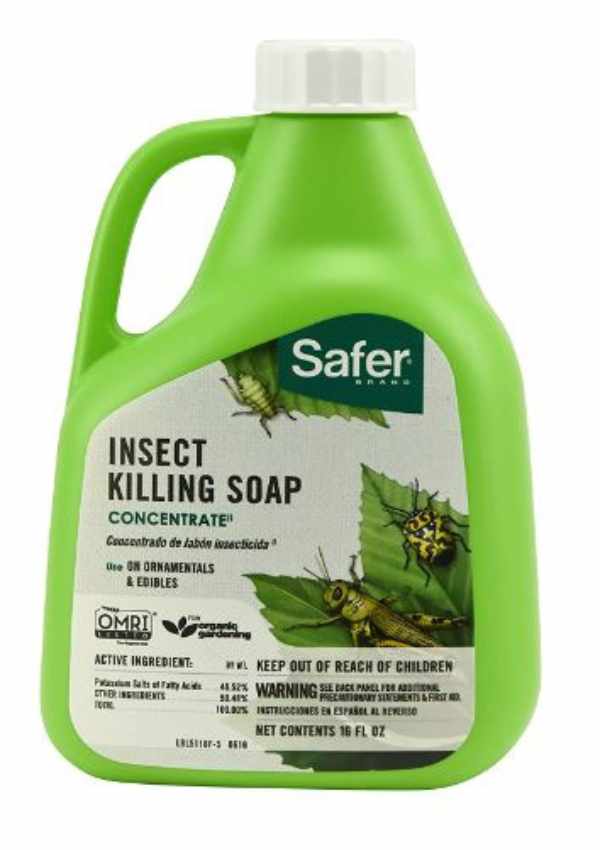
The Safer Brand Insect Killer Soap Concentration penetrates the cuticles of soft-bodied insects, causing them to dry up. It’s a cheap, easy-to-use insecticide that works on a variety of common pests like aphids, earwigs, leafhoppers, mealybugs, mites, sawfly larvae, soft scales, spider mites, and whiteflies.
Spraying insecticidal soap on the bugs will cause them to die immediately without needing to swallow them. It won’t stick around in the environment and is safe to use on edibles up to the day of harvest.
Combine according to the label’s instructions and apply using a trigger or pressure tank sprayer. Spraying insecticidal soap should be avoided when pollinators and other helpful insects, such as bees, are around.
Extremely migratory insects, such as whiteflies, may necessitate numerous treatments to achieve complete control. Aphids, earwigs, leafhoppers, mealybugs, mites, sawfly larvae, soft scales, spider mites, and whiteflies are among the pests targeted.
- Type of product: insecticidal soap sprayThe weight is 16 ounces.
- This product works well on a variety of insects.
- One bottle yields 6 liters of solution.
- Biodegrades rapidly.
- One disadvantage is that it can kill beneficial insects such as bees.
11. HARRIS Diatomaceous Earth Food Grade
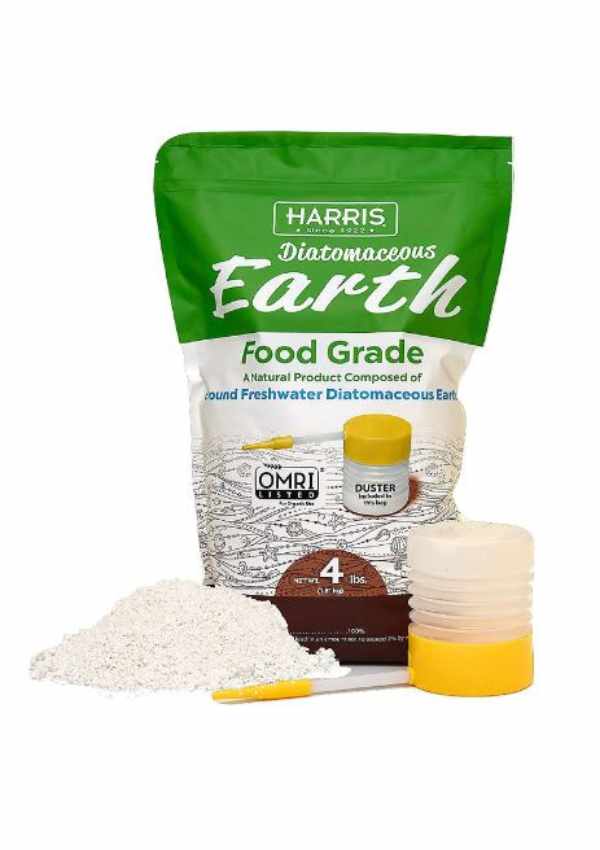
Diatomaceous earth is a naturally occurring mineral with a somewhat verbose name that is made from a sedimentary rock that was formed by fossilized algae (diatoms) and is a fairly abundant resource (it is estimated that diatomaceous earth accounts for 26% of the earth’s crust by weight).
Diatomaceous earth has a variety of applications in and around the home, one of which is as a natural pesticide. This material kills insects without poisoning or suffocating them because of its abrasive properties and affinity for removing lipids (a waxy substance) from their exoskeleton, which ultimately dehydrates them to death.
If you only have a small yard, think about splitting a bag of diatomaceous earth with a neighbor as it is frequently only sold in huge bags at garden supply stores.
Slugs, snails, and other crawling insects can be controlled by simply dusting the ground surrounding your plants with it or even sprinkling it on the foliage. Because diatomaceous earth is dried, it must be reapplied after each rain to be an effective natural pesticide.
This product is effective against the following pests: Ants (excluding fire, harvester, carpenter, and pharaoh ants), Aphids, Beetles, Caterpillars, and Armyworms.
12. Ladybugs
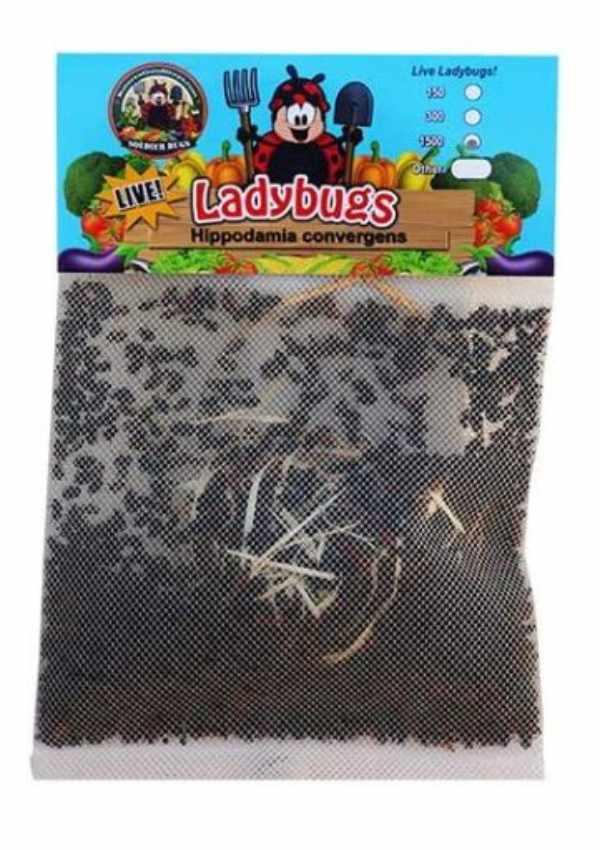
You don’t always need to use pesticides to keep annoying bugs at bay in your garden. Sometimes all you need is a beneficial insect that eats pests! When ladybugs are present to take care of pests for you, you’ll have great luck growing all kinds of fruits and vegetables.
While there are numerous ways to attract pollinators such as bees to your garden, attracting ladybugs is quite difficult. That is why you should think about purchasing some. This low-cost bag of live ladybugs is sent directly to your door, so all you have to do is open it and let them get to work.
What Do Ladybugs Eat? Whiteflies, Aphids, Thrips, Scales, Leafhoppers, Mealybugs, Chinch bugs Asparagus beetle larvae
13. Organic Laboratories Organocide 3-in-1 Garden Spray
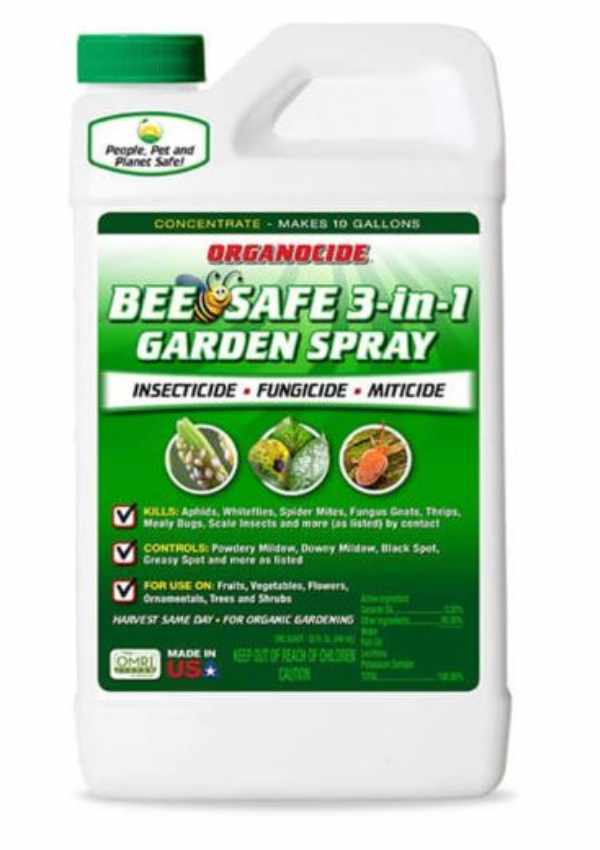
This 3-in-1 garden spray is effective against practically anything that could feed or destroy your veggies. This spray will get rid of pesky insects like aphids, whiteflies, spider mites, and fungus gnats while also assisting you in managing common diseases like powdery mildew and black spots. No specific guidelines are provided for the application.
As well as you can apply it during harvest. If you are concerned about organic gardening techniques, this product meets that need as well because it is OMRI approved for organic use. It can assist you in eliminating the pest at any stage, including eggs, larvae, nymphs, and adults.
The unique composition contains fish oil and sesame oil, resulting in a thicker product that lasts longer on the treated surface. For each gallon of water, you’ll need 3 oz of this concentrate.
To avoid extra stress, dilute the mixture before spraying badly injured plants. If you follow the manufacturer’s directions, this oil is safe for beneficial insects such as butterflies, bees, and ladybugs. Because this oil kills bugs on the touch, you should thoroughly treat the infected regions. When the oil dries on the plant, it hardens into a thin layer that acts as a trap for any insects that arrive there.
- It has miticide, insecticide, and fungicide properties.
- Environmentally friendly and OMRI-listed.
- Neonicotinoids are not included.
- Works as a dormant oil to reduce pests that overwinter.
- The remaining solution can be kept in the refrigerator for up to 45 days.
14. Monterey Bacillus Thuringiensis (B.t.) Worm & Caterpillar Killer
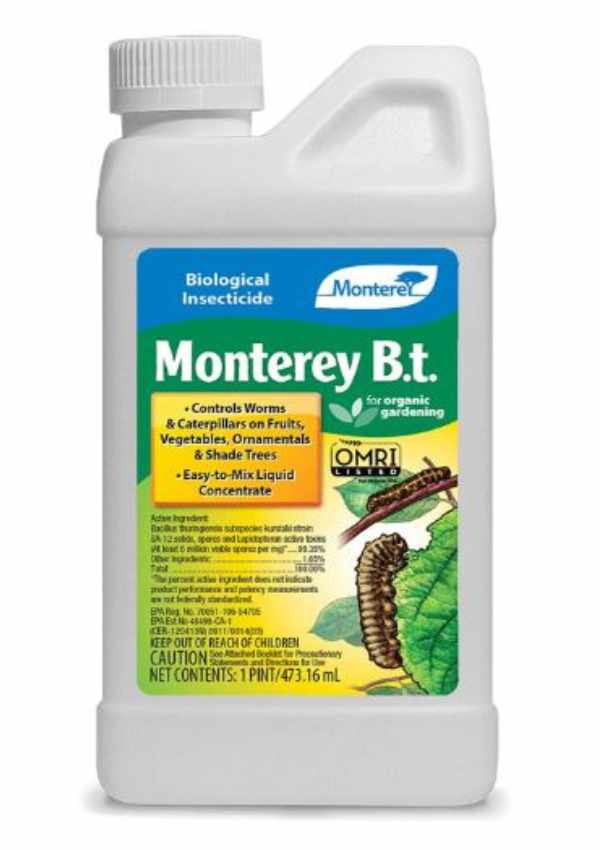
This herbicide is specifically intended for worms and caterpillars. It’s ideal for foliage vegetables like cabbage, broccoli, mustard greens, tomatoes, lettuce, cauliflower, and so on. This product is not dangerous to beneficial garden insects such as ladybugs, honeybees, earthworms, or birds when used as instructed. OMRI has certified this insecticide for organic gardening of both edible and non-edible crops. This biological pesticide should be mixed with water and applied with a sprayer.
Because this solution poisons and kills the bugs, it is necessary to repeat treatments in cases of significant infestation. After consuming this poison, the pests will stop feeding on the plant and die. For best results, apply the pesticide to both sides of the leaves.
On a hot, sunny day, avoid using this product because doing so will just waste it. Environmentally friendly. It has been shown to kill caterpillars and dangerous worms. The spray application is simple.
- 20+ Chic Boho Bedroom Ideas for a Cozy and Stylish Retreat - June 20, 2024
- 12+ Modern Boho Living Room Ideas to Create a Unique Oasis - June 10, 2024
- 10 Stunning Canopy Bed Ideas for a Dreamy Escape - May 16, 2024

